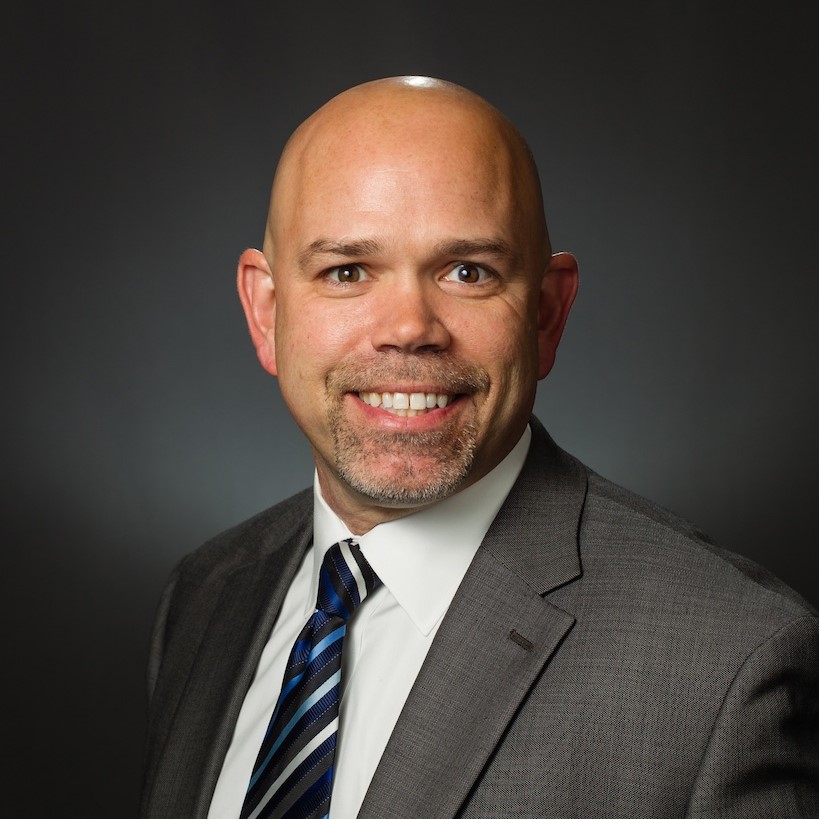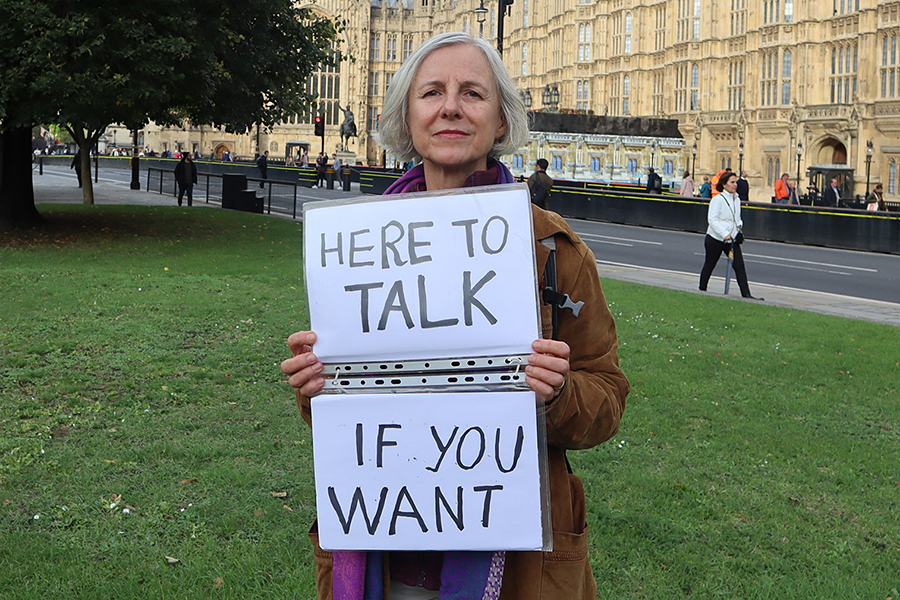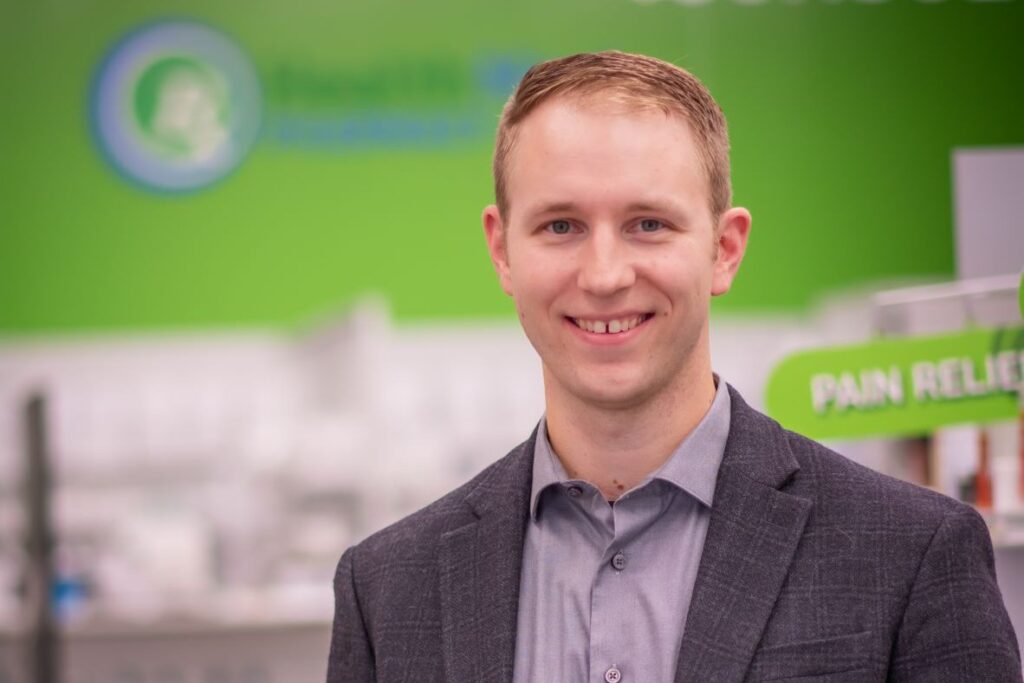
As a young man, Jesse Ramirez decided to put his life on the line and serve his country during the Gulf War. What he could not have known at the time was that years later, he would face a different kind of life-threatening danger than he did abroad.
In May 2007, Jesse lost control of the SUV he was driving near Phoenix with his wife in the passenger seat. Both were thrown out of the car, but Jesse’s injuries were more severe than his wife’s. He was left with a broken back and neck, shattered arms and legs, and a traumatic brain injury.
After several emergency surgeries, Jesse was put on a feeding tube, and his family said he was responsive when they communicated with him. But within 10 days, Jesse’s wife decided to transfer him to hospice care and cut off his food and water against the family’s wishes.
Jesse’s sister contacted Alliance Defending Freedom, and our attorneys filed a lawsuit on her behalf. Jesse’s food and water were restored, and he was able to walk out of a rehabilitation center on his own less than three months later.
We fought for Jesse because we know that all life deserves defending—especially the most vulnerable among us. Now, many of these Americans face a new threat to their lives.
States across the country have legalized assisted suicide, authorizing doctors and other medical professionals to facilitate death.
Advocates for assisted suicide describe the practice as “death with dignity.” In reality, it is a weapon used to target the vulnerable and the sick that only harms those who need competent and compassionate medical care and community services.
What is assisted suicide?
Assisted suicide is often mistaken as synonymous with euthanasia, but the distinction between the two is important. Assisted suicide is when a physician or other health-care professional facilitates a patient’s death by prescribing him a lethal dose of medication, knowing that the patient may commit suicide by taking that lethal dose. Euthanasia is when another person administers the dose or otherwise personally assists in ending a person’s life. With assisted suicide, the patient himself takes his own life with the prior assistance of a medical professional, while euthanasia involves another person killing the patient.
Assisted suicide is not the withdrawal of life-sustaining treatment; rather, it is the active introduction of a lethal agent into the patient’s body, intentionally causing death.
In states that allow assisted suicide, patients are required to have a “terminal illness” to qualify for lethal drugs. But the laws in these states often have broad definitions of what qualifies as a “terminal illness” for these purposes.
For example, the phrase “terminal illness” typically covers both situations where death will occur within six months even with treatment and situations where death would likely not occur if the patient sought and received treatment. This means that someone who has a treatable disease or condition (for example, diabetes) and refuses treatment or is denied insurance coverage for certain treatments is eligible to request and receive lethal drugs to commit suicide.
What are the harms of assisted suicide?
Assisted suicide poses two main problems:
1. Assisted suicide laws facilitate a culture of death
Laws that legalize assisted suicide have effects beyond the act of enabling medical professionals to help their patients commit suicide. By opening the door to easier access to suicide, these laws facilitate a culture of death that is hard to stop once it starts.
For example, look at the role that insurance companies play in assisted suicide. There have been instances where insurance companies have paid for lethal drugs instead of treatments for terminal illnesses. Sadly, it’s easy to see why they would do that: insurance companies are businesses, so it makes economic sense for them to cover assisted suicide instead of expensive life-sustaining treatments.
Further, some assisted suicide laws have dangerous loopholes regarding when and where patients may end their lives. Once the patient has the lethal dose, there is no accountability as to what happens next. No one has to watch the patient take the prescription, and no one is ensuring that the patient administers it himself and only that patient takes it.
Assisted suicide laws devalue life and trivialize death, creating a slippery slope to a culture of convincing and pressuring the vulnerable to end their lives prematurely.
2. Assisted suicide laws violate the rights of conscience for objecting medical professionals
Assisted suicide laws compromise the medical profession, turning doctors’ Hippocratic Oath on its head. Participating in a patient’s suicide is anything but upholding the promise not to “give a lethal drug to anyone.” In fact, the American Medical Association’s Code of Ethics calls assisted suicide “fundamentally incompatible with the physician’s role as healer” and says it “would pose serious societal risks.”
While most laws legalizing assisted suicide affirm the right of health-care providers to decline to write prescriptions for lethal medication, some laws have required health care professionals to provide, upon request, information about assisted suicide to patients and to refer and transfer patients to another provider for lethal prescriptions. Similarly, while a health-care facility may maintain a policy against providing assisted suicide, it nevertheless may have to allow its employees to participate in it when not at work. Such actions violate the consciences of many health-care providers.
And assisted suicide isn’t just an issue for religious people. In Massachusetts, for example—where ADF attorneys filed an amicus brief in defense of the commonwealth’s prohibition on the practice and argued the case in court—an atheist academic also filed a brief supporting the law. Dr. Kevin Yuill of the University of Sunderland in the U.K. wrote that assisted suicide “can never be implemented in a safe and limited way.”
“Rather than seeing the debate in the simplistic terms of outdated religious precepts versus secularism,” he wrote, “we should analyze the value of so-called Christian precepts such as Thou Shalt Not Kill before we jettison them entirely.”
Which states allow assisted suicide?
Currently, 10 states and the District of Columbia allow assisted suicide. In recent years, we’ve seen an increasing number of states consider that deadly path, representing a disturbing trend. Unfortunately, it seems that more states are attempting to legalize assisted suicide, and we are fighting hard to keep this from happening.
Moreover, the states that have already legalized assisted suicide are going back and amending their current laws to make it even easier for patients to access lethal medication. Some states, for example, have a 15-day reflection period as a compromise with legislators opposed to assisted suicide. Now, activists are going back into those states to get rid of the reflection period so that patients can get their lethal drugs more quickly.
These amendments are not only problematic expansions of the ability to legally commit suicide, but they also demonstrate how even those bills that seem mild or were designed as a compromise still pave the way to further expansion of assisted suicide.
How is ADF working to combat assisted suicide?
At ADF, we believe that all life, from the moment of conception to natural death, is precious. Assisted suicide targets the lives of some of the most vulnerable Americans, so we are actively working to combat this deadly practice.
Defending state laws that protect vulnerable lives
First, ADF has defended multiple state laws that protect life by prohibiting assisted suicide. In Vacco v. Quill, three physicians sued the state of New York for prohibiting them from facilitating their patients’ deaths. A federal district court upheld the law, but an appellate court said the law was unconstitutional.
The U.S. Supreme Court agreed to review the case alongside Washington v. Glucksberg, another case in which physicians were challenging a state’s prohibition of assisted suicide, this time in Washington. ADF provided strategic support and funding and coordinated amicus briefs in support of both laws. The Supreme Court unanimously upheld both the New York and Washington laws, ruling that the Constitution does not confer a right to assisted suicide and that states are free to make their own laws regarding the practice.
ADF also successfully defended a Massachusetts law prohibiting assisted suicide against a challenge from two doctors. ADF Senior Counsel Chris Schandevel argued before the Massachusetts Supreme Judicial Court in March 2022, and in December of that year, the court upheld protections for the terminally ill and disabled.
Protecting medical rights of conscience
ADF also works to protect the rights of medical professionals to decline to dispense or refer for life-ending drugs.
One of our first cases was called Vermont Alliance for Ethical Healthcare v. Hoser. In that case, the Vermont state legislature had passed an assisted suicide bill with a protection for physicians who don’t wish to dispense these drugs. In response, the Vermont Board of Medical Practice and Office of Professional Regulation attempted to read a new meaning into it.
According to these state medical authorities, the law required health-care professionals to facilitate their patients’ deaths by informing them about the “option” of assisted suicide even if they declined to dispense the drugs themselves.
Facilitating assisted suicide in this way would have violated the consciences and religious beliefs of medical professionals in the Vermont Alliance for Ethical Healthcare and the Christian Medical & Dental Associations (CMDA), so ADF and Allied Attorney Michael Tierney filed a lawsuit. In 2017, ADF secured a legal victory ensuring Vermont’s law does not force medical professionals to refer or counsel patients for assisted suicide.
ADF attorneys also represented physicians in New Mexico to challenge a state law that required conscientious medical professionals to inform patients about assisted suicide and refer them to someone who would help end their lives. To resolve the lawsuit, the New Mexico legislature passed a new law protecting religious and conscientious objections for medical professionals in the state.
Finally, when California passed a law requiring health-care professionals to participate in the process of assisted suicide, ADF attorneys filed a lawsuit on behalf of objecting doctors. In 2023, California agreed in a settlement that it would no longer force medical professionals to participate in the practice.
As more states continue trying to legalize assisted suicide and force health-care professionals to participate against their religious beliefs and professional ethics, ADF is committed to combatting those efforts and protecting vulnerable lives.
The slippery slope of assisted suicide
Assisted suicide is neither a compassionate nor appropriate solution for those who are suffering. America’s most vulnerable citizens—the elderly, the terminally ill, the disabled, and the depressed—are worthy of life and equal protection under the law. Life should be protected from conception to natural death, and those who object to participating in a culture of death should be defended from being forced to do so.
There is a double standard in our society where we teach suicide prevention while prescribing suicide to the most vulnerable among us. By allowing the legalization of suicide and forcing physicians to be parties to it, we compromise the foundation upon which our society is built: the preservation of life.






